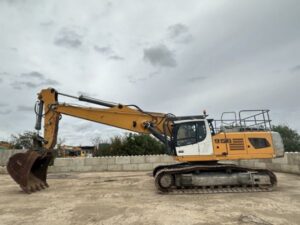The Allure of Auctions:
Used machinery auctions offer a plethora of benefits for buyers, from a diverse range of equipment options to competitive pricing. The key allure lies in the potential to acquire machinery at a fraction of the cost of new equipment, allowing businesses, especially small and medium enterprises, to optimise their budgets and enhance their operational capacity. Moreover, auctions provide access to a global market, broadening the spectrum of available machinery.
Understanding the Auction Landscape:
Auctions can be conducted in various formats, including live onsite auctions, online auctions, or a combination of both. Live auctions provide the advantage of inspecting the equipment in person, while online auctions offer convenience and accessibility, allowing participants to bid from anywhere in the world.
- Do Your Homework: Success at an auction starts with thorough research. Familiarise yourself with the specific models and brands of construction machinery that cater to your needs. Evaluate the market value of the equipment and gather information on its performance, durability, and potential resale value.
- Verify the Seller’s Credibility: Ensure that you are dealing with a reputable auction house or seller. Check their track record, read customer reviews, and verify their authenticity. A credible seller will provide detailed information about the machinery, including its condition, maintenance history, and any necessary documentation.
- Scrutinise the Equipment: If the auction is onsite, take the opportunity to inspect the machinery firsthand. Look for signs of wear and tear, assess the condition of critical components, and inquire about any recent repairs or replacements. If the auction is online, request comprehensive photos, videos, and condition reports.
Preparation and Bidding Strategies:
- Check Maintenance Records: Maintenance history is a critical aspect of evaluating used construction machinery. Well-maintained equipment is likely to have a longer lifespan and better performance. Request maintenance records and check for regular servicing, parts replacements, and any major repairs.
- Understand the Auction Terms: Each auction house has its own set of terms and conditions. Familiarise yourself with these terms, including payment policies, buyer’s premiums, and the process for collecting the purchased equipment. Ensure that you are comfortable with the terms before participating.
- Set a Realistic Budget: Determine your budget prior to the auction, taking into account the potential cost of repairs, transportation, and any additional fees. Stick to your budget during the bidding process to avoid overspending.
- Engage in Smart Bidding: Bidding at an auction can be exhilarating, but it’s crucial to remain calm and focused. Avoid getting caught up in a bidding war, and be prepared to walk away if the price exceeds your budget. Remember, the goal is to acquire equipment at a cost-effective price, not to win the auction.
Post-Auction Considerations:
- Plan for Equipment Transportation: Consider the logistics of transporting the machinery to your location. Factor in the cost and feasibility of transportation when bidding, especially if the equipment is located far from your site.
- Leverage Professional Advice: If you are uncertain about the condition or value of a piece of machinery, don’t hesitate to seek advice from a professional mechanic or equipment appraiser. Their expertise can provide valuable insights and help you make an informed decision.
- Be Prepared for Post-Auction Responsibilities: Once the hammer falls and you’ve secured your purchase, be prepared to fulfill your obligations. This includes making timely payments, arranging for transportation, and addressing any required paperwork.

